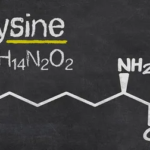In the field of biotechnology, peptide synthesis plays a crucial role in understanding and manipulating biological processes. Among various peptide modifications, lysine methylation is a significant post-translational modification (PTM) that influences gene expression, protein interactions, and cellular functions. Lysine Methylation Peptide Synthesis is a critical technique used to study these modifications, aiding in the development of therapeutic interventions and research applications. This synthesis method helps researchers explore the role of methylation in protein function and disease mechanisms, making it a valuable tool in biomedical sciences.
The Role of Lysine Methylation in Biology
Lysine methylation is a PTM that occurs when a methyl group is added to the lysine residue of a protein or peptide. This modification is primarily associated with histone proteins, which regulate DNA accessibility and gene expression. The process of methylation can result in mono-, di-, or tri-methylated lysine residues, each having distinct effects on protein function. Given its regulatory role, lysine methylation is a key area of study in epigenetics, as it can influence cellular development, differentiation, and disease progression, particularly in cancer research.
The Process of Lysine Methylation Peptide Synthesis
The synthesis of lysine-methylated peptides involves a series of chemical and enzymatic processes to incorporate methyl groups at specific lysine sites. The process typically includes:
- Solid-Phase Peptide Synthesis (SPPS): This widely used method allows for the sequential addition of amino acids, including lysine residues, onto a resin support.
- Methylation Reaction: Using selective methylating agents, lysine residues are modified to achieve mono-, di-, or tri-methylation.
- Purification and Characterization: High-performance liquid chromatography (HPLC) and mass spectrometry are employed to ensure the purity and correct methylation of the synthesized peptides.
By applying this synthesis technique, researchers can generate peptides that mimic naturally occurring methylated proteins, providing valuable insights into their biological roles.
Applications in Biotechnology and Research
The ability to synthesize lysine-methylated peptides has significant applications in various research fields. These include:
- Epigenetic Studies: Investigating how methylation affects gene regulation and chromatin structure.
- Drug Discovery: Developing inhibitors that target lysine methyltransferases (KMTs) for cancer therapies.
- Protein-Protein Interactions: Understanding how methylated peptides influence cellular signaling pathways.
By advancing these applications, researchers continue to uncover new possibilities in therapeutic development and molecular biology.
By enabling precise modifications of peptides, this technique enhances our understanding of epigenetic regulation and protein interactions. For high-quality peptide synthesis solutions tailored to advanced research needs, Biorunstar provides cutting-edge expertise and innovative biotechnological services.

